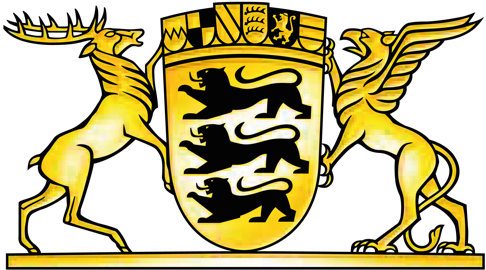Noise is the greatest and, at the same time, most underestimated source of environmental pollution for humans. Noise not only means stress, it can also lead to health problems and impairments. Accordingly, the Ministry of Transport Baden-Württemberg attaches considerable importance to the issue of noise protection, including at a political level, by appointing a noise protection officer. Above and beyond the successes the Ministry of Transport has already had at state level, it also aims to set the course for greater noise protection at a federal and European level. The ministry is thus working on numerous measures and projects to reduce noise.
For example, the German Ministry of Transport is supporting towns and communities with noise campaign planning by means of (online) information offerings, consultations on a case-by-case basis and specialist conferences. Thanks to the noise campaign plans of the towns and communities, numerous specific noise minimization measures have already been initiated. In particular, existing opportunities for action in the interest of noise reduction have been seized in order to set a speed limit of 30 km/h on main through roads.
Further measures:
- All three passenger airports in Baden-Württemberg in Stuttgart, Karlsruhe/Baden-Baden and Friedrichshafen, now have differentiated landing fees according to noise and pollutant emissions. The number of exemptions for night flights is very low. Against the backdrop of the planned changes and expansion plans at the Zurich airport, the state government is keen on protecting the interests of Southern Baden.
- The trigger values for noise remediation on state roads were dropped by 2 dB(A) for residential areas in 2016 and thus, the options available for noise minimization by mean of noise-reducing road covers, protective walls and soundproof windows have been broadened. If the prerequisites for noise remediation are in place, the use of noise-minimizing asphalt surfaces will be ensured when maintaining the roads.
- The motorbike noise displays developed on behalf of the German Ministry of Transport are in use along several of the state’s motorcycle roads. They present an additional measure for traffic inspection and accident committees as well as for municipalities to reduce excessive noise and speeding. They comprise a reflector post counter with an integrated microphone and a dialog display with speed measurement function, which encourages the motorcyclist directly to assume a more moderate and considerate driving style when a clearly defined level is exceeded. The project has been successfully tested in practice and the number of particularly loud motorbikes was significantly reduced on the test routes. Andthe speed and noise levels were reduced on average, too.
- With Baden-Württemberg’s support , the law to prevent noisy freight cars was passed in 2017. The railway noise protection law (Schienenlärmschutzgesetz) stipulates that loud freight trains will not be allowed to travel on the German rail network anymore as of the start of the working timetable 2020/2021.
- The German Ministry of Transport organized a noise conference in June 2018. This provided a platform for identifying new stimuli and ideas for noise protection, for facilitating an insight into the latest noise management developments and for encouraging networking between experts.

